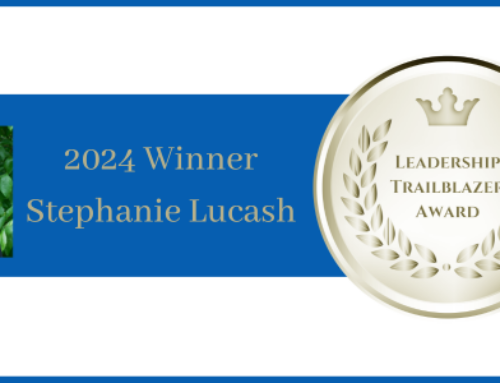“Diversity needs a seat at the table.”
By LWG Editor
Recently, League President, Pamela Antil, ICMA-CM, talked with Hamilton County, Ohio County Commissioner, Denise Driehaus. Commissioner Driehaus recently spearheaded a new Women & Girls Council initiative that seeks to bring women and young girls to the table to talk about how women can best support girls and one another, as well as to open up a dialogue about what strategies are needed to support women of all ages. Commissioner Driehaus hopes the end result is not only to increase the number of elected and senior level appointed executives in local government, but to normalize women’s seats at the table. Here is the interview:
Pam: Who or what inspired you to become a public servant?
Denise: I’m from the west side Cincinnati and grew up in a large family. When I was a young girl, my dad was the co-chair of the Democratic Party and ran for Congress in 1968. I remember all of us kids piling into the family station wagon, with the quintessential megaphone on top, and telling people to vote for my dad. Even though my dad knew he was running in a district that pretty much ensured that he was going to lose, he wanted to provide a voice for the minority. That always stuck with me.
Forty years later, in 2008, I ran for state representative and won. After I was termed out, I ran for County Commission and was elected last year (2016). So my dad was my early inspiration and made me understand that the work I’m doing in public service is important and an honor to serve the community.
Pam: Why do you think there aren’t more women in locally elected or appointed CAO positions in cities and counties?
Denise: I think that women don’t always view themselves or young women aspire to serve in this way. They don’t see themselves in these roles – elected or appointed. You have to see it to be it and there aren’t many examples to prompt young women to think that is something they’d like to do. The fewer we have, the fewer role models that exist so the lack of women at the top continues.
When there are openings in either elected or appointed leadership roles, I’ve observed that many women don’t believe they have the qualifications to compete for the positions, event when they do. In fact, when I first ran for office I had some of these same feelings of not being enough. I don’t know that men go through the same thought process or hesitation. They just seem to kind of go for it and let it all sort it out in the election or interview process.
Women, on the other hand, tend to be more hesitant. For elected positions in particular, women need to be asked more than once to run. We need to be convinced that we are good enough and have the experience. This does cause a situation where we have way fewer women in elected office. I imagine this is true for the highest levels of appointed positions as well.
Pam: What do you think needs to change for cities and counties to do a better job to advance women in local government?
Denise: Very practically and very specifically, we as women need to build each other up. We need to appoint more women to boards, commissions and leadership positions in the community. We need to be intentional, especially with young women that are just embarking on their careers or community service. By doing this they get the experience needed in advocacy, budget and other specific knowledge about cities and counties so that when positions are open, they are not only prepared, but they feel prepared to go up to the next level. If we do this intentionally, it will create the diversity within local government that is needed.
Pam: Tell me about the new Women & Girls Council you founded?
Denise: I have been hyper aware of the need for diversity in community conversations and it is important to me. Unless women have a voice in how to achieve this – how to we approach the issue of supporting each other. We need a chorus of diverse voices to even figure out the best strategies to empower and build each other up.
The Council will bring together girls and young women — from elementary school through college age – along with middle-aged and older women of different paths and life experiences. For example, there are women in the private sector corporate world, small business owners, women who are no longer in the workforce, and even a homeless women who will all be sharing their experiences and insight.
Pam: What do you hope to achieve as an outcome of the new Council?
Denise: First of all, number one, to have the conversation! Make sure people understand that the conversation matters as it pertains to supporting and promoting women and girls. Next, to create some strategies to move women forward and encourage them to consider the importance of their voice in government. This could help or encourage women to consider a run for elected office or consider appointed positions in government. Both paths are extremely important. Finally, a big piece of the conversation is the importance of getting a seat at the table, keeping that seat at the table, and getting more women sitting at the same table.
Beyond this, I really feel that it is important to promote and support young girls so they have better opportunities than I did. So, there will be a really big focus on girls on the Council and the young girls voices will be heard. I have learned a great deal with my own daughter as she was growing up and hope the Council clears the path for this next generation of girls.
Pam: How does a more diverse leadership team in the County impact the community?
Denise: Diversity needs to sit at the table – both on the elected and appointed sides of the table. I’ve found that people don’t really understand what are “women’s issues.” People tend to think of women’s issues as only women’s health, domestic violence, etc. They want to “box it up” so to speak. But, the truth is housing is a women’s issue. Job creation is a women’s issue. Education is a women’s issue. All issues are women’s issues! And I sure want women sitting at the table when these issues are discussed. Things get lost in these discussions if there isn’t diversity at the table. When those viewpoints aren’t shared, it is not good for the community.
We as women have to refuse to be pigeon holed especially when it comes to the budget because this is where these “issues” become programs and funded. It is a guidepost for how we do our business. If we are not there, the fear is that some of our priorities will not be reflected and women in the community are not fully served. It’s critically important for us to be at the table.
Pam: Some research shows that more elected women on a board doesn’t necessarily equate to appointing more women to senior executive career positions. What have you observed in this regard in your career?
Denise: I was appointed to the Cincinnati Recreation Commission in the early 1990’s and served 16 years in this appointed role. In particular, I learned valuable budget, public speaking and advocacy skills. This gave me the confidence to run for office later. Serving on a board or commission gives women some of the experience and confidence they need to run for office on their own some day.
Pam: What can we all do to eliminate some of the inherent biases that sometimes work against women?
Denise: First of all, my advice would be to take ownership if you are one of the few women on a particular board or department. Exhibit the behaviors that you want men and other women to know about how effective women can be in these roles. For me, I want my colleagues to know what I bring to the table. Specifically, I want people to see my leadership qualities. I let them know that I have been a business owner, I know a lot about economic development. Otherwise, I may be stereotyped. I pay attention to how I carry myself. I want them to see and that I can bring forward smart, thoughtful policies.
I view myself as a peer of my colleagues – I don’t take a second seat to any of my male colleagues. I promote very intentionally what I am to people, which is a woman in elected office. Because it is not just about me – it’s about setting an example and being a role model of what an elected official should be – male or female.
People don’t always view the work we do in government as admirable. I hope more women in government changes this view in the future. I am very fortunate to be in elected office and I want to use part of the platform I am honored to have to promote and encourage these girls and young women to be a part of the great work being done. We need them.
____________________
Born and raised on the west side of Cincinnati, Commissioner Denise Driehaus is a lifelong resident of Hamilton County. She is honored to serve her hometown as Vice President of the Board of County Commissioners.Prior to her service as a Commissioner, Denise served 4 terms in the Ohio House of Representatives as the Representative of the 31st Ohio House District. Before entering public service full-time, she owned and managed two small businesses.
As Commissioner, Denise serves as President of the Hamilton County Family and Children First Council, Vice Chair of the Hamilton County Emergency Management Agency, and as a board member of the Hamilton County Transportation Improvement District, OKI Regional Council of Governments, Southwest Ohio Workforce Investment Board, Downtown Cincinnati, Inc., REDI Cincinnati, the City-County Shared Services Committee, and the Hamilton County Landbank.
Denise earned a Bachelor’s degree in Political Science from Miami University (OH). She is the mother of two children, Sarah and Andrew, and she resides in the Cincinnati neighborhood of Clifton.
Pamela “Pam” W. Antil has over 25 years of experience directly managing and advising local government agencies across the country including small and large cities such as San Jose, CA, Ann Arbor, MI and Palo Alto, CA. Currently, she is the Assistant City Administrator for the City of Santa Barbara, CA.
Ms. Antil has been recognized for her published articles and papers on a variety of topics including advancing women in local government; the future of policing in the United States; business networking; innovation and design thinking; post-merger/operational due diligence in the private sector; and use of social media by local government. An avid networker herself and early adopter of social media in government, Ms. Antil founded the Municipal Managers group on LinkedIn in 2007, which has over 12,000 members today and the League of Women in Government in 2015, supporting the advancement of women in local government.
Pam is an active member of the International City/County Management Association, Cal-ICMA, Alliance for Innovation, Municipal Management Assistants of Northern & Southern California, BJA Executive Session on Police Leadership, Emerging Local Government Leaders as well as serves as a Board Member for Women Leading Government CA and President of the League of Women in Government. Pam has a Bachelor’s degree from Central Michigan University and a Master of Public Administration degree from California State University. She is the mother of two children, Sydney and Peyton, and she resides in Santa Barbara, California.




